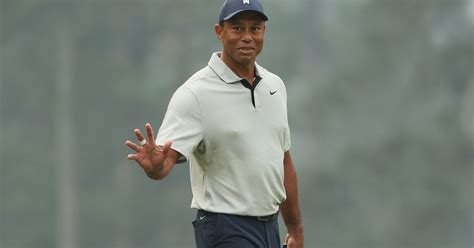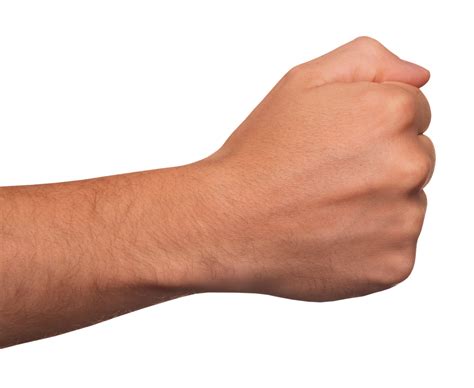
Cooper Cronk, former NRL star and current Fox League commentator, ignited controversy with a shocking on-air threat directed towards Gold Coast Titans player Tino Fa’asuamaleaui, stating he’d “stick a fist so far down his throat, he’ll be tasting leather for a week” if Fa’asuamaleaui didn’t improve his tackling technique. The comment, made during a preview of the Titans vs. Dolphins match, drew immediate criticism for its violent nature and inappropriateness, raising questions about acceptable commentary standards and the potential impact on Fa’asuamaleaui and the broader NRL community.
The remark, delivered during Fox League’s pre-game show, swiftly circulated online, prompting widespread condemnation from fans and media personalities alike. Cronk’s aggressive language, deemed by many as completely unacceptable for a public broadcast, overshadowed the intended analysis of Fa’asuamaleaui’s performance and tackling style. The fallout immediately led to discussions about the responsibility of commentators to maintain a professional and respectful tone, regardless of their passion for the game or perceived shortcomings in player performance.
While Cronk’s comment was undoubtedly intended to emphasize the need for improvement in Fa’asuamaleaui’s tackling, the violent imagery employed has sparked a debate about the line between critical analysis and harmful rhetoric. Some argue that Cronk’s language crossed a line, promoting a culture of aggression and potentially inciting violence, while others suggest that the reaction is an oversensitive response to a figure of speech. The incident has nevertheless reignited the conversation about the impact of media commentary on player well-being and the overall image of the NRL.
The immediate aftermath saw a flurry of social media reactions, with many calling for an apology from Cronk and action from Fox League. Critics argued that the comment not only violated broadcasting standards but also set a poor example for aspiring players and young fans. The incident highlights the fine line commentators walk between providing insightful critique and engaging in inflammatory or disrespectful language. The contrast between insightful analysis and aggressive rhetoric became the focal point of discussions across various platforms.
Cooper Cronk, a highly respected figure in the NRL, boasts an illustrious playing career, including multiple premierships and representative honors for Queensland and Australia. His transition to commentary was met with enthusiasm, given his strategic mind and deep understanding of the game. However, this recent incident has significantly tarnished his reputation and cast a shadow over his broadcasting career. The incident serves as a stark reminder that even seasoned professionals are not immune to making regrettable statements that can have far-reaching consequences.
Fox League, the broadcast platform for Cronk’s commentary, has yet to release an official statement addressing the controversy. The silence from the network has further fueled the criticism, with many questioning whether any disciplinary action will be taken. The network’s response, or lack thereof, will likely set a precedent for how similar incidents are handled in the future. The pressure is mounting for Fox League to take a clear stance on the issue and demonstrate its commitment to responsible broadcasting.
Tino Fa’asuamaleaui, the target of Cronk’s controversial statement, is a prominent player for the Gold Coast Titans and a representative for Queensland in the State of Origin series. Known for his aggressive playing style and powerful tackles, Fa’asuamaleaui is considered a key player for the Titans. The impact of Cronk’s comments on Fa’asuamaleaui’s mental state and performance remains to be seen, but the incident underscores the potential for media commentary to affect players both on and off the field. The potential psychological effects on Fa’asuamaleaui, particularly given the public nature of the criticism, are a significant concern.
The incident draws a stark contrast to Cronk’s carefully cultivated image as a cerebral and articulate analyst. Known for his insightful observations and tactical breakdowns, Cronk’s recent outburst has surprised many who have followed his career. The disconnect between his perceived professionalism and the violent nature of his comments has amplified the criticism and fueled the debate over accountability in sports commentary. The unexpected nature of the comment, coming from a usually composed figure, has intensified the scrutiny and calls for appropriate action.
The broader context of the NRL and its relationship with media personalities further complicates the situation. Commentators often play a crucial role in shaping public perception of players and teams, and their words carry significant weight. The incident underscores the importance of responsible journalism and ethical commentary in sports broadcasting. The need for media outlets to ensure their commentators adhere to a high standard of professionalism and respect is crucial for maintaining the integrity of the game.
This incident raises broader questions about the culture of masculinity within the NRL and the normalization of aggressive language. Critics argue that Cronk’s comment reflects a deeper issue within the sport, where violent rhetoric is often excused as passion or banter. The incident serves as a reminder of the need for ongoing efforts to promote respectful and inclusive language within the NRL community. The incident has reignited discussions about the language used in sports commentary and the potential for it to normalize aggressive behavior.
The incident has sparked a wider debate about the role of sports commentators and their responsibility to provide fair and unbiased analysis. Many argue that commentators should focus on providing insightful critiques without resorting to personal attacks or inflammatory language. The need for a more balanced and objective approach to sports commentary is becoming increasingly apparent. The focus should be on constructive criticism that helps players improve their game, rather than resorting to personal attacks.
Furthermore, the controversy underscores the importance of media literacy among viewers, particularly young fans who may be impressionable and easily influenced by the language used by commentators. Educating young viewers about the difference between insightful analysis and harmful rhetoric is crucial for promoting responsible consumption of media content. The need for critical thinking skills to discern between constructive criticism and inappropriate language is more important than ever.
The potential legal ramifications of Cronk’s comments, though unlikely to be pursued by Fa’asuamaleaui, have been raised by some legal experts. While considered hyperbole by many, the language used could potentially be interpreted as threatening or intimidating, raising questions about whether it constitutes a breach of any relevant broadcasting standards or laws. While legal action is improbable, the potential for legal ramifications highlights the seriousness of the situation.
The incident has prompted many to compare Cronk’s comments to other controversial statements made by sports commentators in the past. These comparisons serve to illustrate the recurring nature of the problem and the need for more effective measures to prevent such incidents from happening again. Learning from past mistakes and implementing stricter guidelines for commentary are essential for ensuring a more respectful and professional broadcasting environment.
The incident has had a significant impact on the perception of Fox League as a responsible broadcaster. The network’s silence in the face of widespread criticism has raised questions about its commitment to ethical journalism and player well-being. The need for Fox League to address the issue publicly and take appropriate action is crucial for restoring its credibility. The network’s response will likely determine how the public perceives its commitment to responsible broadcasting standards.
The broader implications of the incident extend beyond the immediate controversy and raise important questions about the culture of accountability within the NRL and the media. The need for a more proactive approach to addressing inappropriate language and behavior is becoming increasingly apparent. Implementing stricter guidelines and promoting a culture of respect are essential for fostering a more positive and inclusive environment for players, fans, and commentators alike.
The long-term impact of the incident on Cooper Cronk’s career remains to be seen. While it is unlikely to completely derail his broadcasting career, it will undoubtedly tarnish his reputation and may lead to a more cautious approach in his future commentary. The incident serves as a valuable lesson about the importance of thinking before speaking and the potential consequences of using inappropriate language.
The controversy also highlights the power of social media in shaping public opinion and holding individuals accountable for their actions. The swift and widespread condemnation of Cronk’s comments demonstrates the ability of social media to amplify voices and demand change. The incident underscores the need for public figures to be mindful of their words and actions, as they are constantly subject to scrutiny and can be held accountable for their behavior.
The incident serves as a catalyst for ongoing discussions about the need for greater diversity and inclusivity within sports commentary. Bringing more diverse voices and perspectives to the table can help to create a more balanced and respectful broadcasting environment. Promoting diversity and inclusivity within the media is essential for ensuring that all voices are heard and that different perspectives are considered.
The incident underscores the importance of providing ongoing training and education for sports commentators on responsible broadcasting practices. Equipping commentators with the knowledge and skills to navigate sensitive topics and avoid using inappropriate language is crucial for preventing similar incidents from happening in the future. Investing in training and education for commentators is essential for promoting responsible journalism and maintaining the integrity of the sport.
Ultimately, the Cooper Cronk incident serves as a stark reminder of the power of words and the responsibility that comes with being a public figure. The incident has sparked a valuable conversation about the need for greater accountability, respect, and professionalism within the NRL and the media. The hope is that this incident will lead to positive change and a more inclusive and respectful environment for all. The need for ongoing efforts to promote responsible journalism and ethical behavior within the sports community is more important than ever.
Frequently Asked Questions (FAQ)
-
What exactly did Cooper Cronk say about Tino Fa’asuamaleaui?
Cooper Cronk stated, “I’ll stick a fist so far down his throat, he’ll be tasting leather for a week” during a Fox League broadcast while discussing Tino Fa’asuamaleaui’s tackling technique. This comment was made in the context of what Cronk perceived as inadequate aggression and technique in Fa’asuamaleaui’s performance. This statement was viewed as a highly aggressive and inappropriate figure of speech.
-
Why is Cooper Cronk’s comment considered controversial?
Cronk’s comment is controversial due to its violent nature and threatening undertones. Many believe it crossed the line between providing critical analysis and promoting aggression. The language was deemed inappropriate for a public broadcast, particularly given the potential influence on young viewers. The language used was considered by many to be unacceptable, and potentially inciting violence.
-
Has Fox League, the network broadcasting the comments, responded to the incident?
As of the latest reports based on the source article, Fox League has not released an official statement addressing the controversy. This silence has drawn criticism and increased pressure on the network to take action and clarify its stance on responsible broadcasting standards. The lack of response from Fox League has further fueled criticism and speculation.
-
What has been the reaction from the NRL community and fans?
The reaction from the NRL community and fans has been largely negative, with widespread condemnation of Cronk’s comment on social media and other platforms. Many have called for an apology from Cronk and disciplinary action from Fox League. Some have also questioned whether the comment reflects a broader issue of aggressive language within the sport. Many find that there’s a fine line to be drawn, and that Cooper Cronk may have crossed it.
-
What could be the potential consequences for Cooper Cronk following this incident?
While the long-term consequences remain to be seen, the incident has undoubtedly tarnished Cronk’s reputation and could potentially impact his future broadcasting opportunities. It may also lead to Fox League implementing stricter guidelines for commentators and promoting a more cautious approach to on-air commentary. Furthermore, the incident serves as a valuable lesson about the importance of thinking before speaking and the potential consequences of using inappropriate language in a public forum. He may be put on probation, or given a suspension.
-
What was the intent behind Cooper Cronk’s comment?
The intent behind Cooper Cronk’s comment appears to be to strongly emphasize the need for Tino Fa’asuamaleaui to improve his tackling technique and exhibit more aggression on the field. However, the violent imagery used to convey this message overshadowed the intended criticism. Whether intentional or not, the language he used has brought negative publicity.
-
Has Tino Fa’asuamaleaui responded to Cronk’s comment?
As of the latest reports, there has been no publicly available information regarding Tino Fa’asuamaleaui’s direct response to Cooper Cronk’s comment. It is unclear whether he has addressed the incident privately or intends to make a public statement. It’s unclear if he will make a statement regarding the incident.
-
What are the broader implications of this incident for sports commentary?
This incident highlights the importance of responsible journalism and ethical commentary in sports broadcasting. It underscores the need for commentators to provide insightful critiques without resorting to personal attacks or inflammatory language. The incident also raises questions about the culture of accountability within the NRL and the media. This may also be looked back on, as a mark for ethical broadcasting.
-
Could Cooper Cronk face legal repercussions for his comments?
While unlikely, some legal experts have suggested that Cronk’s comments could potentially be interpreted as threatening or intimidating, raising questions about whether it constitutes a breach of any relevant broadcasting standards or laws. However, it is generally considered hyperbole and legal action is improbable, unless Tino Fa’asuamaleaui chooses to pursue that course of action. Although it is very unlikely to occur.
-
How does this incident compare to other controversial comments made by sports commentators in the past?
This incident is comparable to other controversial statements made by sports commentators in the past, highlighting the recurring nature of the problem and the need for more effective measures to prevent such incidents from happening again. These comparisons serve to illustrate the importance of learning from past mistakes and implementing stricter guidelines for commentary. This may be a benchmark for future instances.
-
What role does social media play in shaping the narrative surrounding this incident?
Social media has played a significant role in shaping the narrative surrounding this incident by amplifying voices and demanding change. The swift and widespread condemnation of Cronk’s comments demonstrates the ability of social media to hold individuals accountable for their actions. This proves that social media can bring negative and positive consequences.
-
How can sports media outlets promote more responsible broadcasting practices?
Sports media outlets can promote more responsible broadcasting practices by providing ongoing training and education for commentators, implementing stricter guidelines for on-air commentary, and fostering a culture of respect and inclusivity within their organizations. Sports media outlets need to be held responsible for on-air talent.
-
What can be done to encourage greater diversity and inclusivity within sports commentary?
Greater diversity and inclusivity can be encouraged within sports commentary by actively seeking out and promoting diverse voices and perspectives, providing mentorship and training opportunities for aspiring commentators from underrepresented groups, and creating a more welcoming and inclusive environment for all. By bringing more people to the table, there may be fewer instances like this one.
-
How does the culture of masculinity within the NRL contribute to incidents like this?
The culture of masculinity within the NRL, where aggressive language is sometimes normalized or excused as passion, can contribute to incidents like this. Addressing this issue requires ongoing efforts to promote respectful and inclusive language within the NRL community and challenge harmful stereotypes. The NRL needs to take active steps to ensure this doesn’t happen again.
-
What is the responsibility of viewers in consuming and interpreting sports commentary?
Viewers have a responsibility to consume and interpret sports commentary critically, recognizing the difference between insightful analysis and harmful rhetoric. Educating young viewers about media literacy and promoting responsible consumption of media content is crucial for fostering a more informed and discerning audience. By being informed, there may be less shock to those who watch.
-
What message does this incident send to young and aspiring NRL players?
This incident sends a mixed message to young and aspiring NRL players. On one hand, it highlights the importance of respecting opponents and avoiding violent language. On the other hand, it can potentially normalize aggressive rhetoric and contribute to a culture where such behavior is tolerated. This may shape or influence young and aspiring NRL players in a negative way.
-
How can the NRL address the issue of violent language and aggression within the sport?
The NRL can address the issue of violent language and aggression within the sport by implementing stricter penalties for inappropriate on-field and off-field behavior, promoting educational campaigns that emphasize respect and sportsmanship, and fostering a culture of accountability among players, coaches, and commentators. By promoting these steps, it may help improve the integrity of the sport.
-
What are the potential long-term effects of this incident on the relationship between sports commentators and players?
The potential long-term effects of this incident on the relationship between sports commentators and players could include increased tension and mistrust, as well as a greater emphasis on media training and responsible communication. It is important for both commentators and players to engage in respectful dialogue and maintain a professional relationship. This may cause more tension, depending on how the NRL and Fox League handle it.
-
How can the NRL and Fox League work together to prevent similar incidents from happening in the future?
The NRL and Fox League can work together to prevent similar incidents from happening in the future by establishing clear guidelines for on-air commentary, providing ongoing training for commentators, and fostering a culture of accountability and respect within their respective organizations. By working together, there may be less of a chance for this to occur again.
-
What is the most important lesson to be learned from the Cooper Cronk incident?
The most important lesson to be learned from the Cooper Cronk incident is that words have power and that public figures have a responsibility to use their platforms responsibly. The incident serves as a reminder of the need for greater accountability, respect, and professionalism within the NRL and the media. This serves as a lesson, and as a need for greater measures to be put in place.









